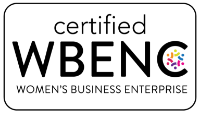By Andrew C. Jackson, President BravoTECH
How you communicate is critically important to a successful job search, because there are no take-backs or do-overs. From building your resume to the final interview, the impressions you make will determine whether you get the position or get eliminated. Here are eight ways communication skills can give you an edge over other candidates.
- Your Resume. In the hiring process, you are the “product” and your potential employer wants to know the benefits you will provide. So highlight successes, achievements and awards in addition to past job descriptions. If you were part of a decision that saved the company money, or if your team completed a major project under budget and ahead of schedule, make sure to note these successes on your resume.
Be clear, be concise, and be respectful of the hiring manager’s time by keeping your resume to two pages. To give an extreme example, a recruiter recently showed me a 35-page resume that we both knew very few employers would even attempt to read.
- Cover Letters. When replying to a job listing, create a cover letter that ties your experience to the advertised needs of the potential employer. This gives the manager a reason to read your resume and shows that you understand the company’s objectives. Never send a resume without at least a short cover note.
- Phone Calls. Do not be shy about picking up the phone and calling the hiring manager about an opportunity that interests you. A phone call shows that you are sincere, energetic and persistent, all positive qualities in a potential hire.
- Your Network. Take a look at your network for any connections to the company you’d like to work for. A personal reference from a colleague is another good way to differentiate yourself with an employer. A note of caution: asking a friend or two to put in a good word is fine, but asking a dozen friends to reach out on your behalf is annoying.
- Social Media. Now’s the time to use LinkedIn and Twitter to maximize your job search. Investigate target firms. Find new job postings. Use LinkedIn to identify connections between your contacts and employees of these companies. Check social media daily for new activity.
- Face-to-Face Contacts. It’s so easy to communicate by email and phone that we can forget the power of face-to-face communication. Take advantage of professional societies and industry workshops to expand your network and uncover job opportunities that may not be public knowledge. Have lunch with colleagues who may be able to share information with you or provide a recommendation.
- Written Follow-Ups. Follow up after any direct contact or interview with a thank you or summary note if appropriate. You can use email or write a letter, but don’t send a text. It’s just good manners to follow up, and your attention to the details of your conversation will be remembered.
- Thank You Notes. This final communication is often forgotten but is an important step in maintaining your professional network. Send a quick note of appreciation to all of those who helped, supported, counseled or served as references during your search. You never know when you may need these folks again.




